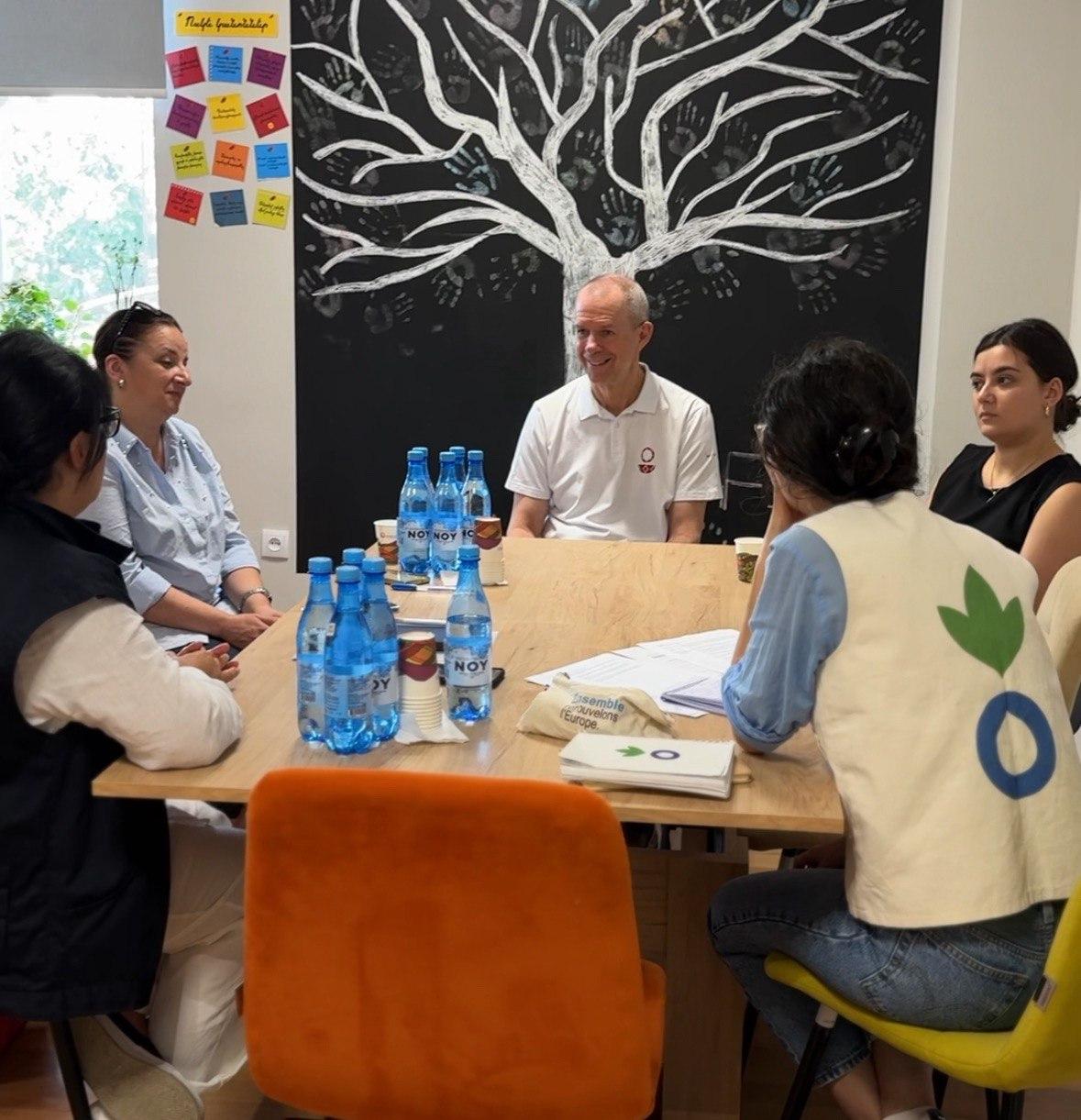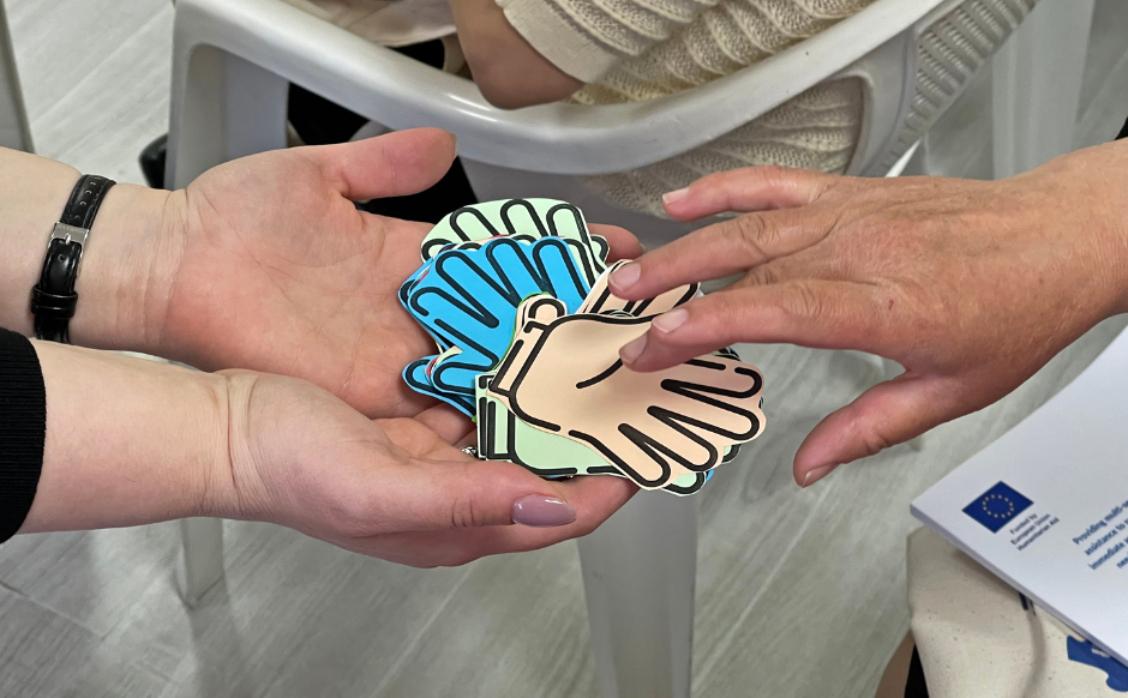

Nagorno Karabakh refugees in Armenia: A journey towards integration and personal and professional empowerment
A little over a year ago, the military offensive launched by Azerbaijani into Nagorno-Karabakh resulted in the mass exodus of over 100,000 people who sought refuge in Armenia. One year on, the humanitarian needs of the refugee population in Armenia are still significant, as many continue to face significant challenges to this day. To keep shedding light on this ongoing but often overlooked humanitarian crisis, Action Against Hunger South Caucasus is sharing the stories of refugees and their journey towards integration in Armenia through their participation in livelihoods initiatives supported by Action Against Hunger and its partners.
Adaptation and Integration Clubs
To increase the refugees’ prospects of finding employment and integrating into the Armenian labour market, Action Against Hunger, together with its partners Mission Armenia and ԳՈՒՄ ՀԿ / P&T NGO, established Adaptation and Integration Clubs in different provinces in the country. These clubs offered 4-month long support to refugees, through group and individual sessions that were designed to strengthen their professional, personal and soft skills. Throughout their duration they helped to provide the tools to help them gain access to and later navigate the Armenian labour market, thus increasing their prospect of finding employment in the country.
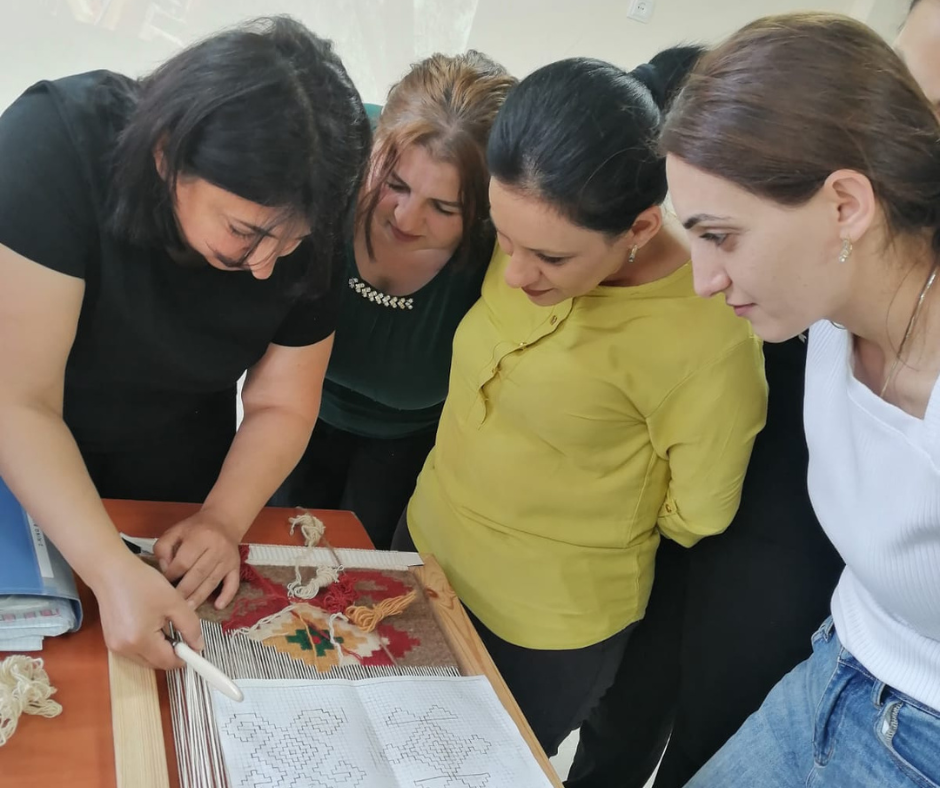
The engagement of corporate volunteers also enriched the participants’ experience and knowledge on a broad range of subjects. These took the form of a series of interactive lectures organised by professionals from different business fields to impart their skills and to help participants in their job search or to start up a business. This included the visit of corporate volunteers to support CV and Motivation Letter development, Marketing, the Armenian Labour Code, Effective Communication, Leadership and Stress Management. One highly appreciated visit was that of Samvel Mirzakhanyan, founding Director of Haterk Food LLC – and a refugee from Nagorno Karabakh himself – who enthusiastically agreed to meet the Artashat club participants, to share his experiences and perspectives on beekeeping in Armenia. In addition, with the support of the Ministry of Education, Science, Culture and Sport, club members were able to avail of a 3-day basic computer skills course.
The Adaptation and Integration Clubs also played an important role in building up the motivation and confidence of participants. As one participant, Hratsine, recalls she felt very isolated after her initial arrival in Armenia, and chose to join one of Adaptation and Integration Clubs to increase her interaction with other refugees and build connections. After having completed four months at the club in Ararat province, Hratsine decided to apply for a business toolkit grant to launch her own business. Her story will be covered in the next post.
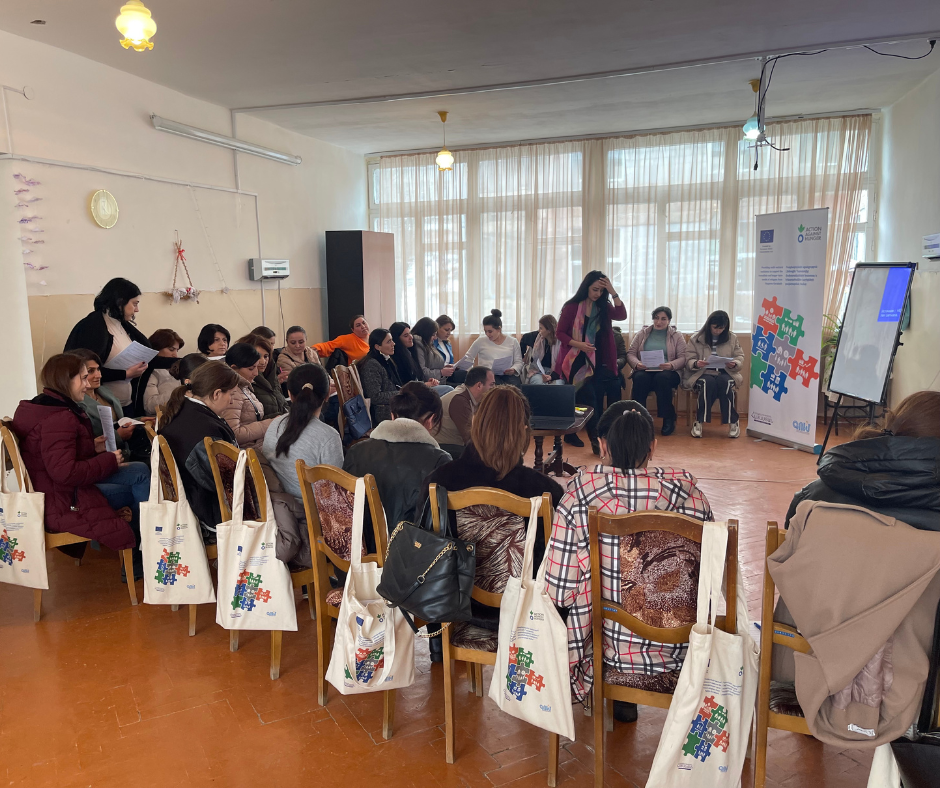
Self-employment Toolkit Grants
Before fleeing Nagorno-Karabakh together with her family, Hratsine was employed at a big telecom company. She recalls feeling very isolated after her initial arrival in Armenia and chose to join an Adaptation and Integration Club in Ararat province run by Mission Armenia to increase her interaction with other refugees and build connections. After having completed the 4-month long programme, Hratsine decided to apply to Action Against Hunger for a self-employment toolkit grant to launch her own business. Her application was successful and with the help of the grant money she received, she was able to transform her experience in drying fruit – a popular activity in Nagorno-Karabakh – into an income-generating business. The fruit that she dries grows in her garden in Ararat.
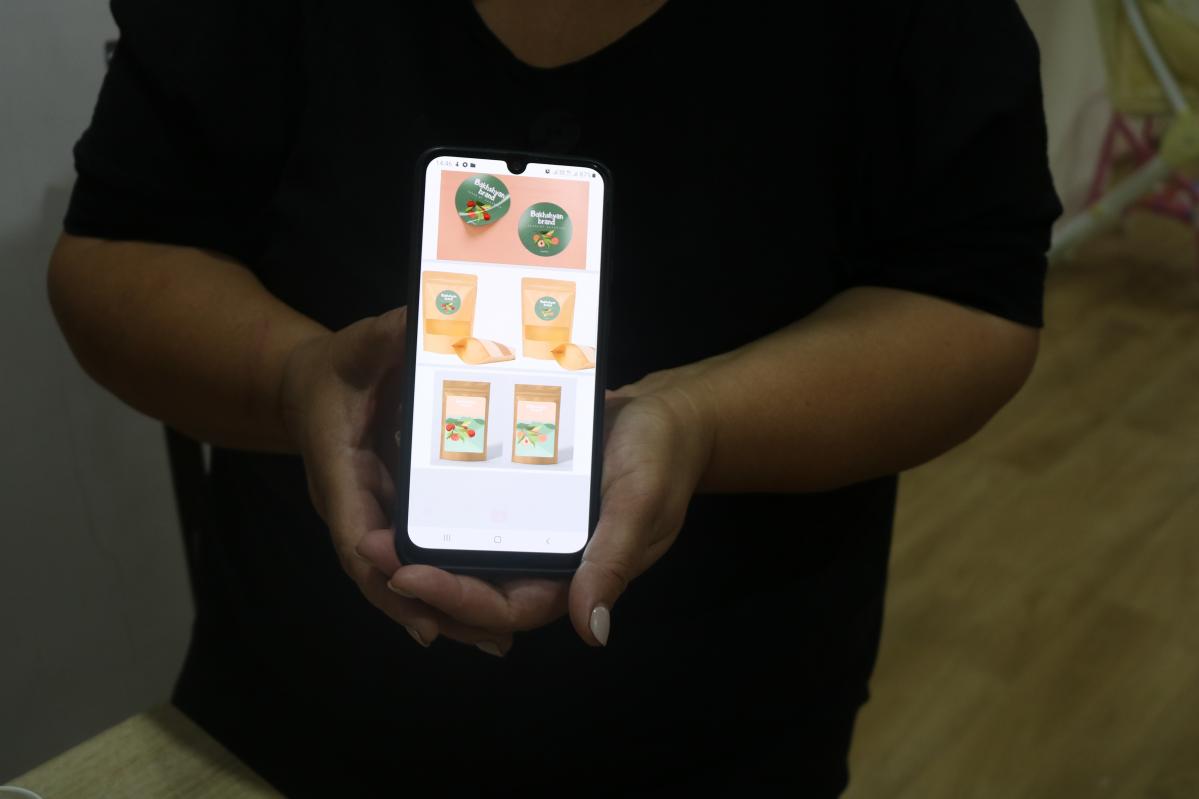
The grant money that Hratsine received helped her pay for a big fridge needed for storing the fresh and dried fruits, and a vacuum sealer machine used to wrap the finished product. With the support of her daughter-in-law – who is helping her with marketing – she created her own brand called Bakhshyan.
Soon, Hratsine will start to sell her products, both online and in shops. The launch of her business has not only offered her financial benefits but has also increased her social interaction in her region. Since Hratsine has had to build a network from scratch, before being able to market her product, she has participated in sales exhibitions and presented her products to local supermarket owners. This has contributed to her overcoming the feelings of isolation through daily social interactions that have often developed into new relationships. All of which has greatly contributed to her mental well-being and integration.
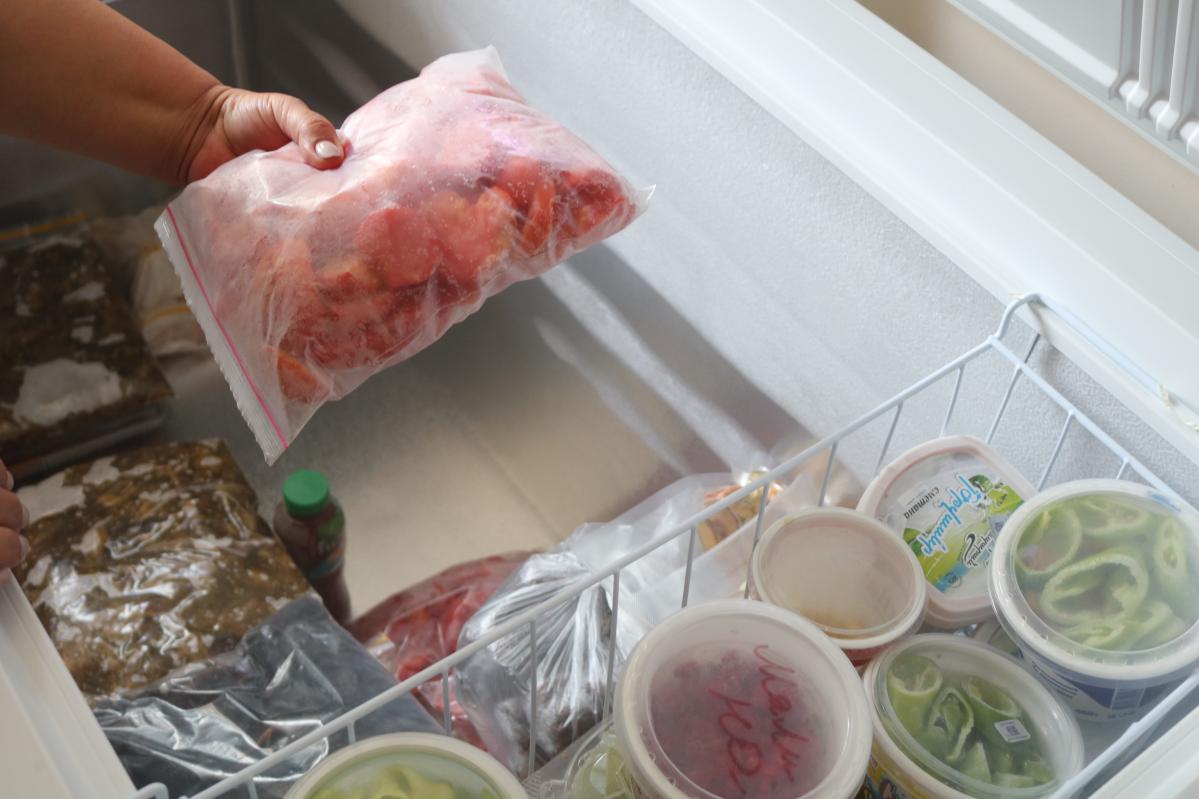
Already, Hratsine has started to explore ways in which she can expand her brand in the future, such as the production of fruit tea and aroma powder for sauces. As she says, this will be her legacy to her family and a way for them to secure an income in the future.
Employment Internship Opportunities
Before they were forced to leave Nagorno-Karabakh together with their families, Marina and Siranush were professionally well placed, with both having secure employment. Marina worked for a big telecom company and Siranush supported herself through a finance degree by working in accounting. However, since arriving in Armenia securing employment has become a significant challenge. So, both Marina and Siranush applied to an internship programme implemented by Action Against Hunger South Caucasus, Mission Armenia and ԳՈՒՄ ՀԿ / P&T NGO, and were selected for one of four internship positions offered by FINCA Microfinance Bank Limited an international nonprofit microfinance and social enterprise organisation. Since 1999, FINCA has made it their mission to fight poverty in Armenia by providing financial services to small business owners and farmers, enabling them to build financial resilience and improve their quality of life.
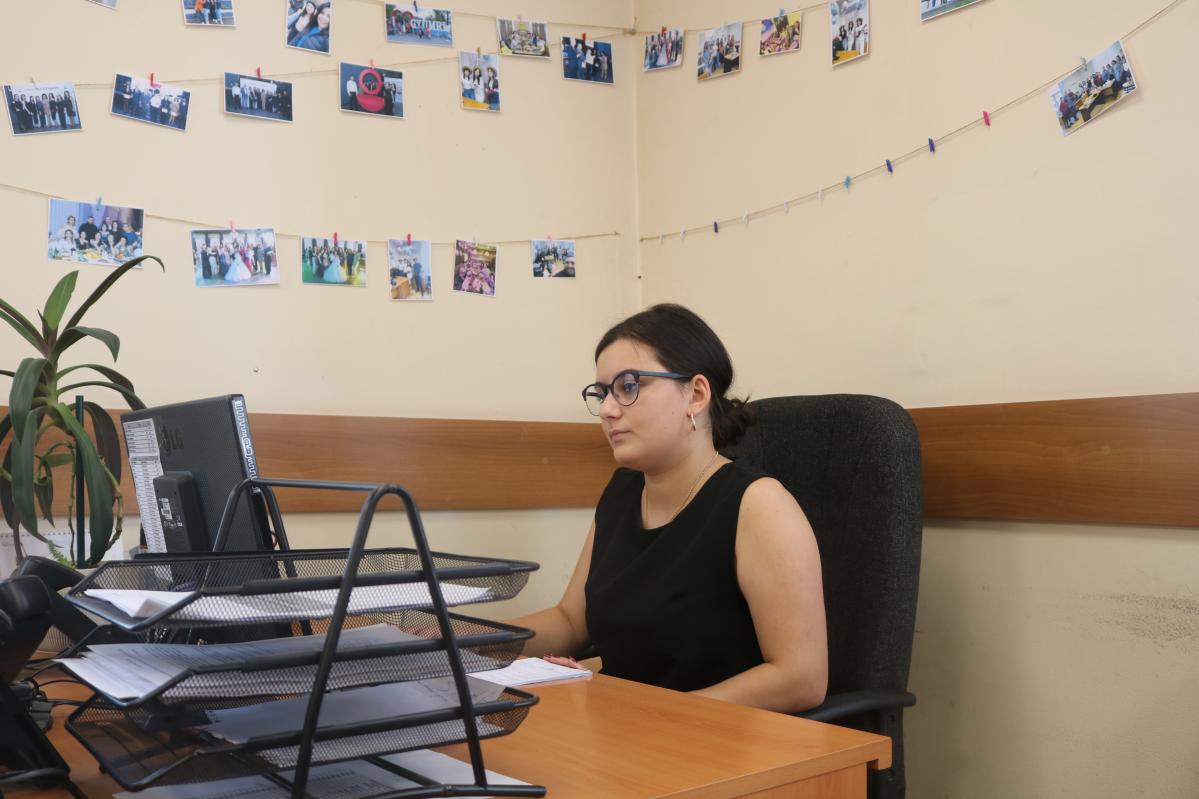
Marina and Siranush have now both completed their 2-month internships at FINCA’s Armenia office in Yerevan, with Marina working in the Contact Centre and Siranush assisting the accounting department. In the beginning, Marina faced some challenges in her new position, due to the Nagorno-Karabakh dialect having created hurdles in her direct interaction with customers. However, over time she was able to overcome this obstacle, which has increased her self-confidence and improved her communication skills. For Siranush, the different working style required adaptation but ultimately increased her skills in quick decision-making. Both women have also benefitted from managerial mentoring and additional training provided by FINCA, such as language, information security, anti-money laundering courses, customer service and sales management training.
Both Siranush and Marina pointed out that they were made to feel very welcome and supported by their new colleagues at FINCA Armenia, which has presented them with the opportunity to grow professionally. They believe that the internships will be a stepping stone for their future career in Armenia, having opened a door to this new sector with expanding job opportunities. We are thrilled to say, that Siranush has already been offered the position of Accounting Specialist in the Accounting Department of FINCA. Marina is currently searching for permanent employment in Yerevan where she lives with her family.
The Adaptation and Integration Clubs were run under the project 'Providing multi-sector assistance to support the immediate and longer-term needs of refugees from Nagorno Karabakh’ funded by the European Union-EU Civil Protection & Humanitarian Aid. Action Against Hunger South Caucasus and its partners, Mission Armenia and ԳՈՒՄ ՀԿ / P&T NGO, have supported 60 refugees with self-employment toolkit grants and 40 with Employment Internship Opportunities.
